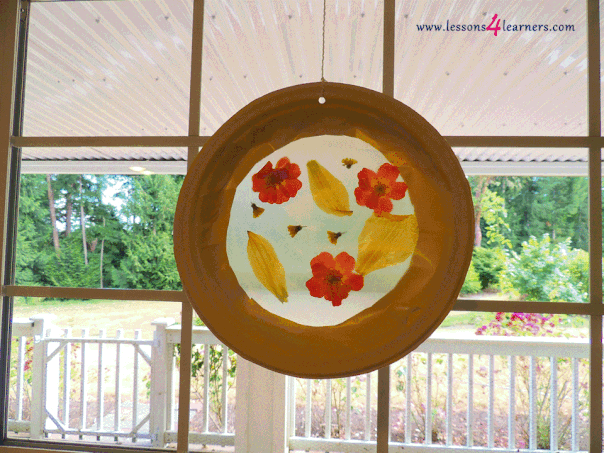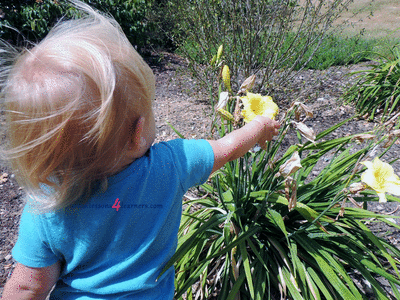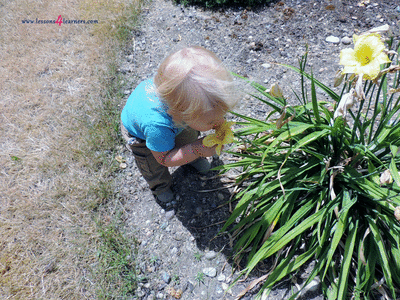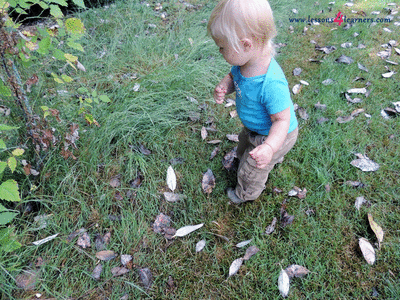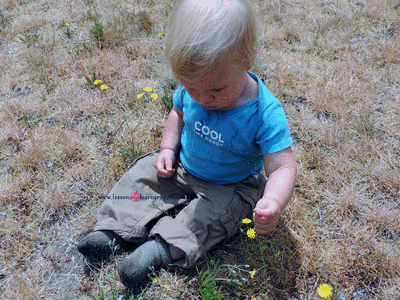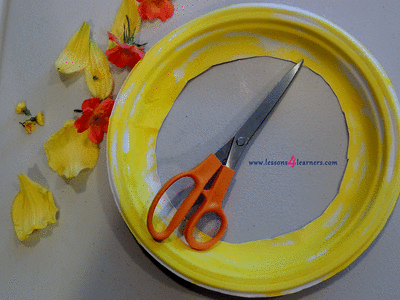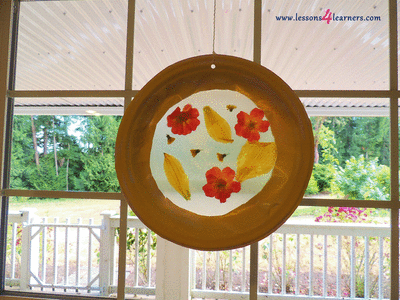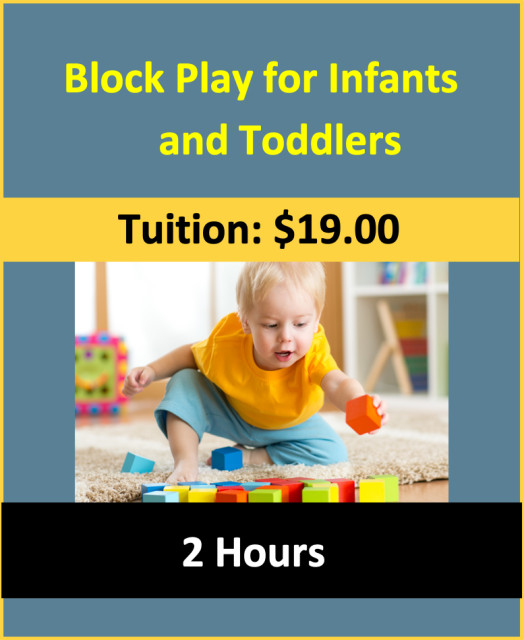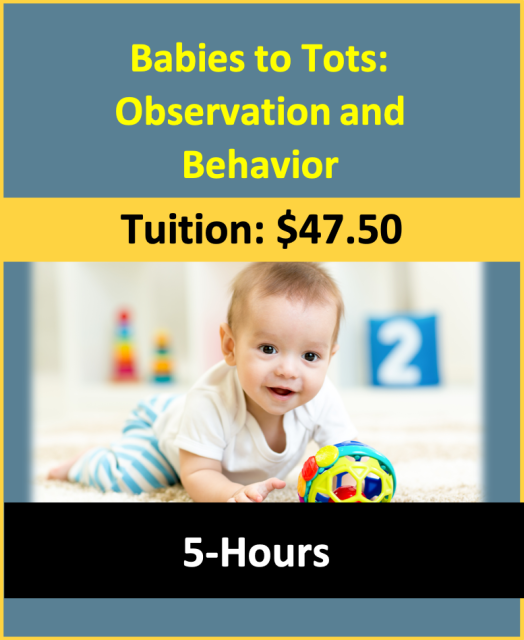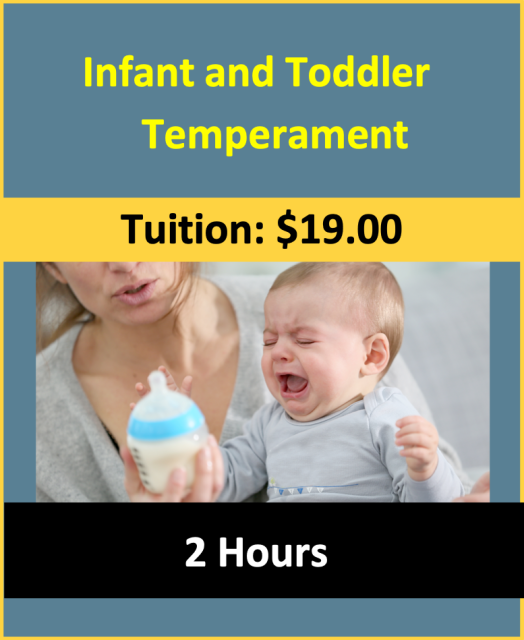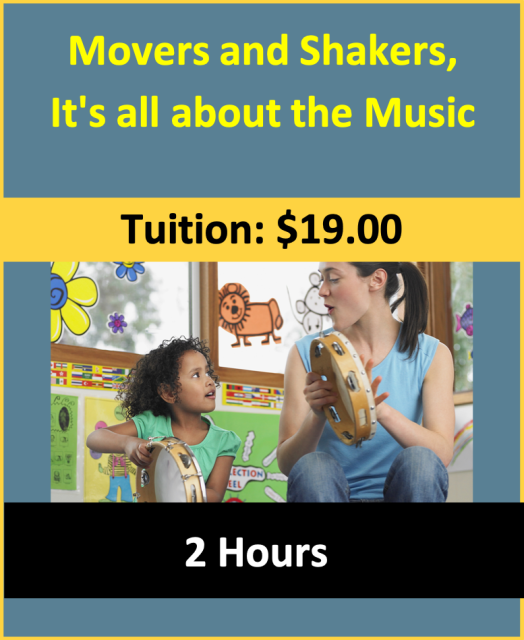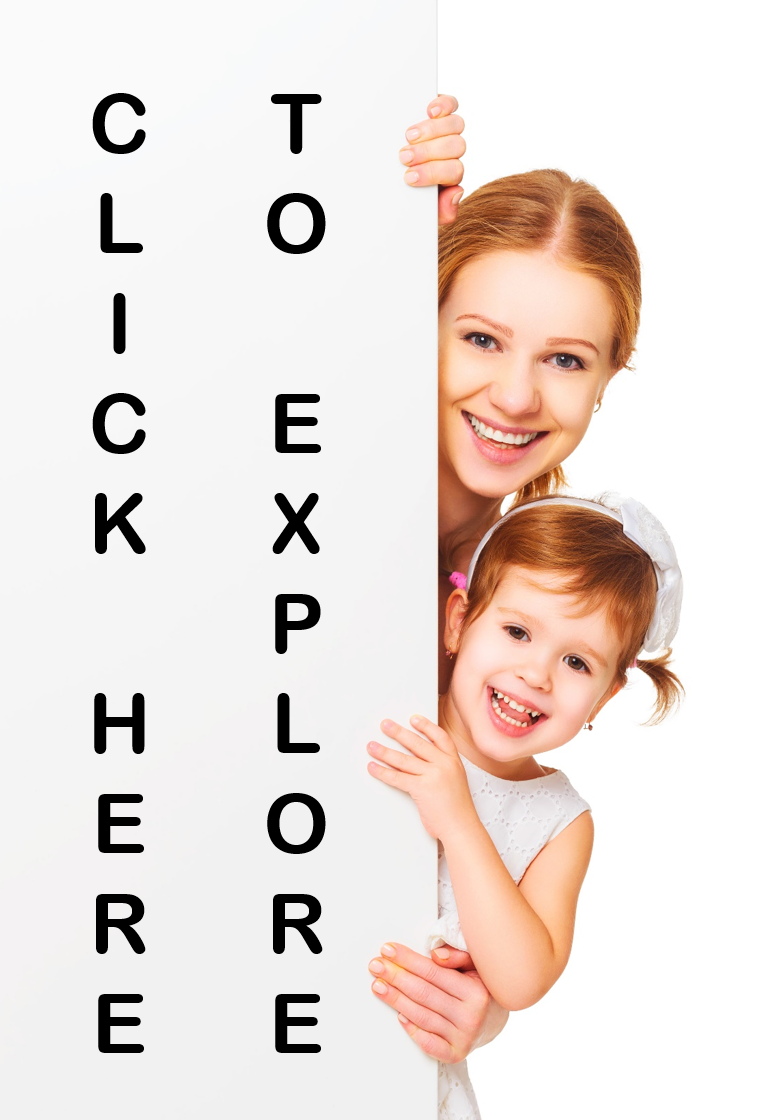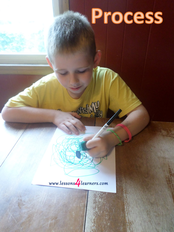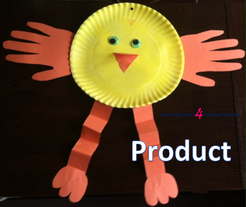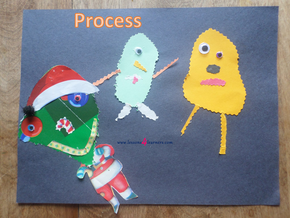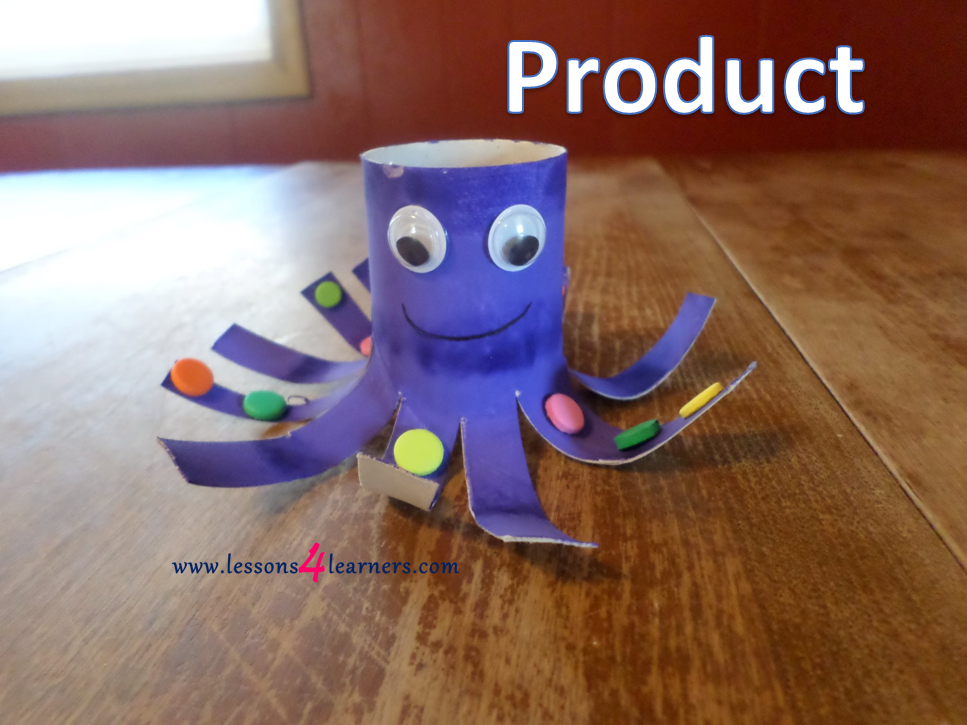Nature Suncatchers
Lesson Plan:
|
Activity:
Nature Suncatchers
Lesson plan developed by Ms. Erika Geelhoed, BA Ed
Age Group:
* Lesson plan objective and assessment can be adapted to use this activity with preschoolers.
Objectives:
Children will:
|
|
Click on the photos to enlarge.
|
II.7.4a
Materials:
|
Procedure:
- Cut out a hole in the center of a paper plate (children can paint or color the remaining outer boarder of the plate that will be the outside of their suncatcher).
- Measure out 2 pieces of contact paper that are about a half an inch larger than the hole.
- Take children outside to collect nature items.
- Whatever leaves, flowers, etc. that the children reaches for, put in a bag to bring back inside.
- Once back in the room, begin placing the items on the contact paper talking with children about items as you do so.
- When finished, seal the other side of the plate with the remaining piece of contact paper.
- Hole-punch the finished piece and hang with string in a window.
Assessment:
- Observe and record children's reaction to different textures of plants, flowers, and leaves
Process vs. Product Art
It is important that art lessons focus on the children’s experience while they are creating, the process, rather than the finished product. This means allowing children the freedom to experiment with materials and techniques instead of making an unoriginal copy of a provided sample. However, this does present challenges when lesson planning. After all, you have to have some sort of focused goal in mind while teaching. The main thing is to just let the children go during learning. Their work may end up completely different than what you originally had planned for (and may not be aesthetically pleasing to the adult eye), but it’s theirs. Make it a point to remind yourself that it’s all about the childrens learning, not what they can produce.
Note: Please provide appropriate supervision to the children in your care when completing all activities. You will need to decide what types of activities are safe for the children in your care. Appropriate and reasonable caution should be used when providing art and sensory experiences for children. Toddlers require special caution, only use non-toxic materials, and do not allow toddlers to put things in their mouths that are a choking hazard.
Click on the course icon for enrollment information.
Focusing on the Process vs the Product
by Debbie Hasbrook M.Ed.
|
“Oh what a pretty….umm what is it?” is a common comment heard from many parents as their child hands them a picture. It won’t take long before a child believes that they need to label their creation to please a parent or teacher. Yes, teachers will also join a child who is creating and ask “What is it?” Early childhood education is about exploration, discovery, experimenting and mastering skills. Supporting young children in their efforts and providing opportunities for success is an important aspect of their social and emotional development.
A child that has spent time touching, tasting, using a variety of materials and their wonderful imaginations need us to affirm their work as is. Most of the time a child is not working towards making something we might recognize. Their feeling of pride and accomplishment are visible with big smiles and wanting to show it to a teacher or important adult. |
|
We help children do this by focusing on the process vs the product. Use materials that are developmentally appropriate and inviting for your age group. It is not uncommon for a teacher planning the art center to think in terms of “what” the children can make today. When we focus on the “process” we think in terms of how an activity can be done, what materials we can gather, where the activity will be done, and what can we add to the environment to make it a pleasurable activity. It is all about the experience and an introduction to materials that spur the imagination.
Process art experiences do not have a right or wrong way to create. If a child asks you to do it for them simply say “The way you do it is just right.” Notice and comment on elements of their work, such as “I see that you are using blue.” Listen to what the children are saying as they create. This is a great time to use all the bits and pieces that have collected from other projects. Use natural items to provide interest such a painting with leaves or feathers. |
|
Art is not only a fun activity, children learn through their experience. They learn to problem solve, plan, predict outcomes, math and logic. Children learn how to use materials such as how much glue to use, to how much paint works on their brush, how things go together. For many children the process is a way to reveal and work through their emotions. There is nothing better that squishing and pounding play-do to release emotions.
A child who is allowed to explore materials at their own pace in their own way may spend more time on the activity. Often a child who is asked to put together pieces to make, a rabbit, will glue on one thing and leave the activity to do something else. Process art takes time, planning and patience. It can often be messy and that’s ok. Just have children wear a smock. |
|
15 rabbits placed against a backdrop of grass and trees is pleasing to our eyes, and parents think it’s cute. However this is for adults. The processed art is based on the needs of the children and what they will gain from the experience. Planning process art activities does not take more time. I have seen teachers spend hours cutting out pieces for a project based craft experience. It just takes changing your thought process.
|
